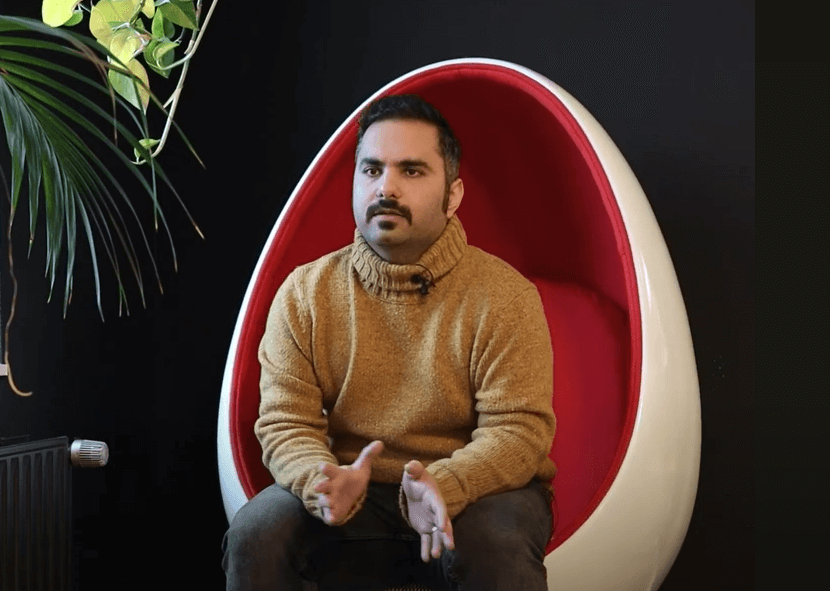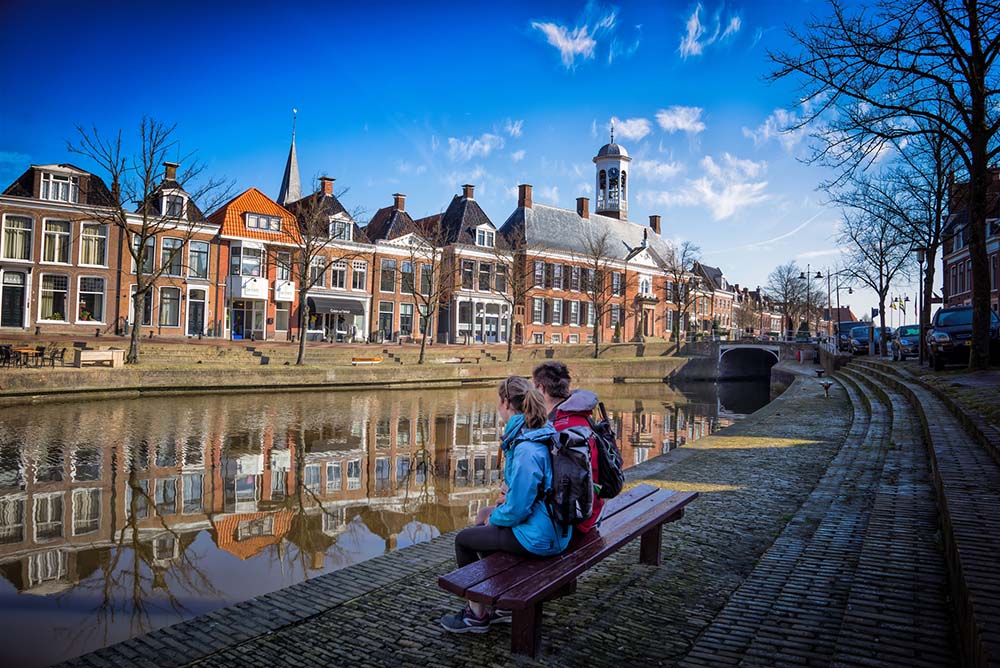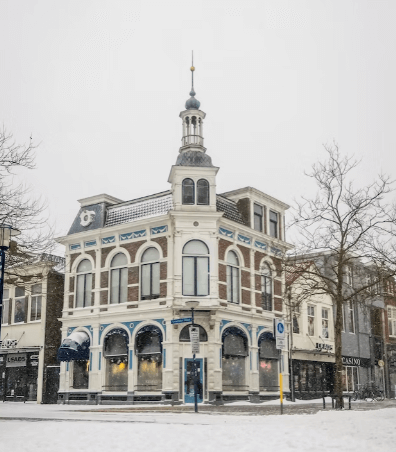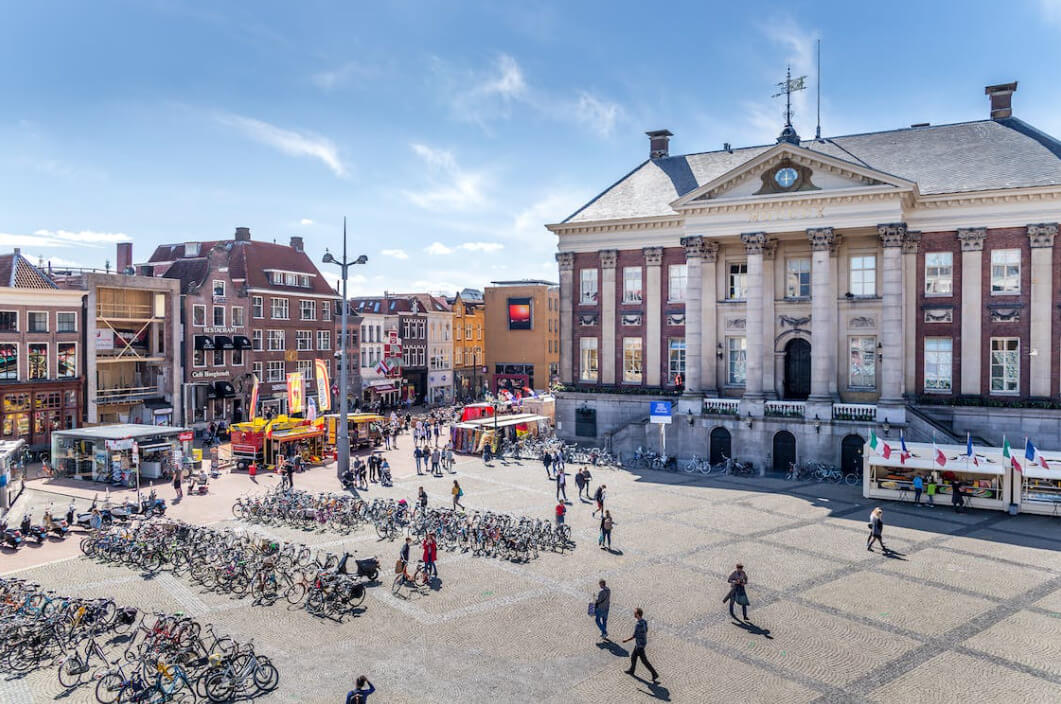Our company’s working language is English and offers flexible hours. Working in Groningen is great! – software engineer
Michelle arrived in Groningen and her first 'full-time job' was actually to look for a full time job. Not knowing Dutch proved to be a hurdle but thanks to her skills and perseverance she got a job offer from a company she loves!

Looking for a job in Groningen initially proved to be a tricky task for software engineer Michelle, but after scouring the internet for vacancies she then landed in a job at a company she now loves.
Michelle spoke with Make it in the North about life at Powerchainger and what it's really like to live in the North of the Netherlands. Her dream job of working in the police force with animals wasn't quite possible, but she's compensating for this by being able to cycle to work while having flexible hours that let her take charge of her own life and schedule.
Can you tell us a bit about yourself? How did you end up here in the North?
So I'm Michelle. I'm from South Africa originally.
I've lived there my whole life. And then my fiancé and I decided that we would like to go on a new adventure when he got a great career opportunity to work in Eemshaven.
So he helped Google build its data center. He is a quantity surveyor – a little-known position which entails dealing with construction and contracting costs.
So a great company brought us over and it will soon be a year since we’ve been living here. I am a software engineer, so I'm quite lucky that my field is universal and I don't necessarily have to be qualified with a regulatory body.
My dream job would have been to be a dog handler, but unfortunately I’m not Dutch so I can’t join the police force over here.
Do you think your experience differs from people who moved here specifically for their job?
I ended up in a province that I probably would never have gone to. You know, if I'd moved to the Netherlands, I would have gone to the Randstad because that's where a lot of the tech jobs are.
But because I'm a spouse, I've ended up in this beautiful place. So that's the biggest difference I’d say.
So how did you find your current job?
I found my software engineering role through LinkedIn – that’s as easy as it was. I work for a company called Power Chainger which uses data to help people improve their energy habits.
I got the job around a month after we moved to Groningen. Looking for a job was a full-time job for me. I maybe applied for around 200 positions.
I also looked at Make it in the North for postings but back then I didn’t know so much about it. I kept my CV mostly the same but I adapted my cover letter for each of my applications.
That was also something new for me. Cover letters. In South Africa we don’t really use cover letters. Companies here in the Netherlands care about what you’re like as a person.
Was not knowing Dutch an issue?
At Powerchainger specifically no since it’s an international-friendly company. But in general I did initially find it difficult to find a job in the North. Many jobs here require Dutch fluency.
I’m from South Africa, so knowing Afrikaans helps. But a lot of companies require at least B1 or even C1 Dutch – that was very disheartening. While software engineers don’t need to know Dutch specifically to do their job, we have a very team-driven career. We’re never working by ourselves. We have to be able to communicate with our team and understand our client base. I need to understand my client and my target market to be able to build good software for them.
In my case, Power Chainger is a very international company. Our language of business is English.
What do you like most about your job?
Starting with the fact that everything is in English, that’s already great. The company is also very flexible – I can work from home or from the office. I also have flexible hours which is helpful in case I need to go to the doctor. That means I can go without having to put in leave requests.
And what about working in the Netherlands in general?
I also love that I can cycle to work. It’s amazing! There’s so much infrastructure for that.
There are also many events for startups, which is fortunate because Power Chainger itself is a startup. We seem to be attending such events and competitions practically every month. It’s interesting to see how much energy is invested in growing startups.
Was there anything that surprised you about working in the Netherlands?
That there are many 32-hour jobs. That’s the most amazing thing I’ve ever learned in my life. In South Africa it’s like: you work for 40 hours or have no job.
When I was job hunting I got asked: How many hours a week would you like to work? I thought it was a trick question, to test how committed I was. But then I came here and was given a 32-hour contract.
Now I’m learning Dutch thanks to my newly found spare time. Plus I get to walk my dogs.
And also that people don’t eat warm lunches here. But we’re an international company so we bought a microwave for the kitchen.
What was it like integrating in the Northern Netherlands?
I heard people say Dutch people are rude but that wasn’t my experience. A Dutch person waiting in line next to you isn’t necessarily going to strike up a random conversation. But I’ve had so many Dutch people help me with things. You just have to ask them directly.
Groningen is great!
Were there any challenges along the way that you’ve had to overcome?
That's a very good question. Personally a challenge I faced was joining a different kind of organization than I was used to, so it’s not necessarily a ‘Netherlands problem’. But I do think finding a job here is difficult if you don’t speak Dutch.
For instance I’ve gone to conferences where no one speaks English, and someone might feel awkward approaching the other people without knowing their language. You might assume people think you aren’t smart enough.
What advice do you have for people looking for work in the North?
Embrace the possibilities that you have here. Check whether there are any industries here that aren’t a thing back home. You may find a completely new field here where your skills could also be valuable.
But again, learning Dutch – super important!
Video: Julia Dumchenko
Interviewer: Monica Scholte
Editor: Christoph Schwaiger
The interview has been edited for clarity & brevity.







